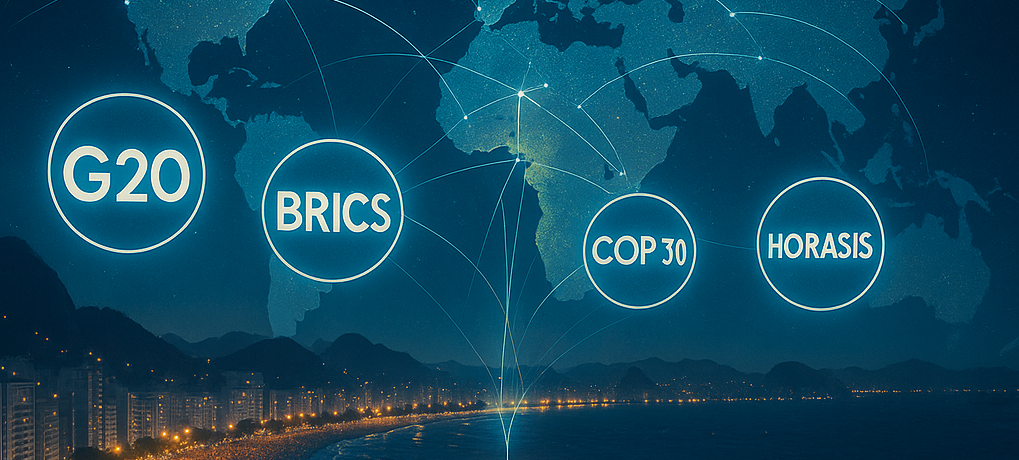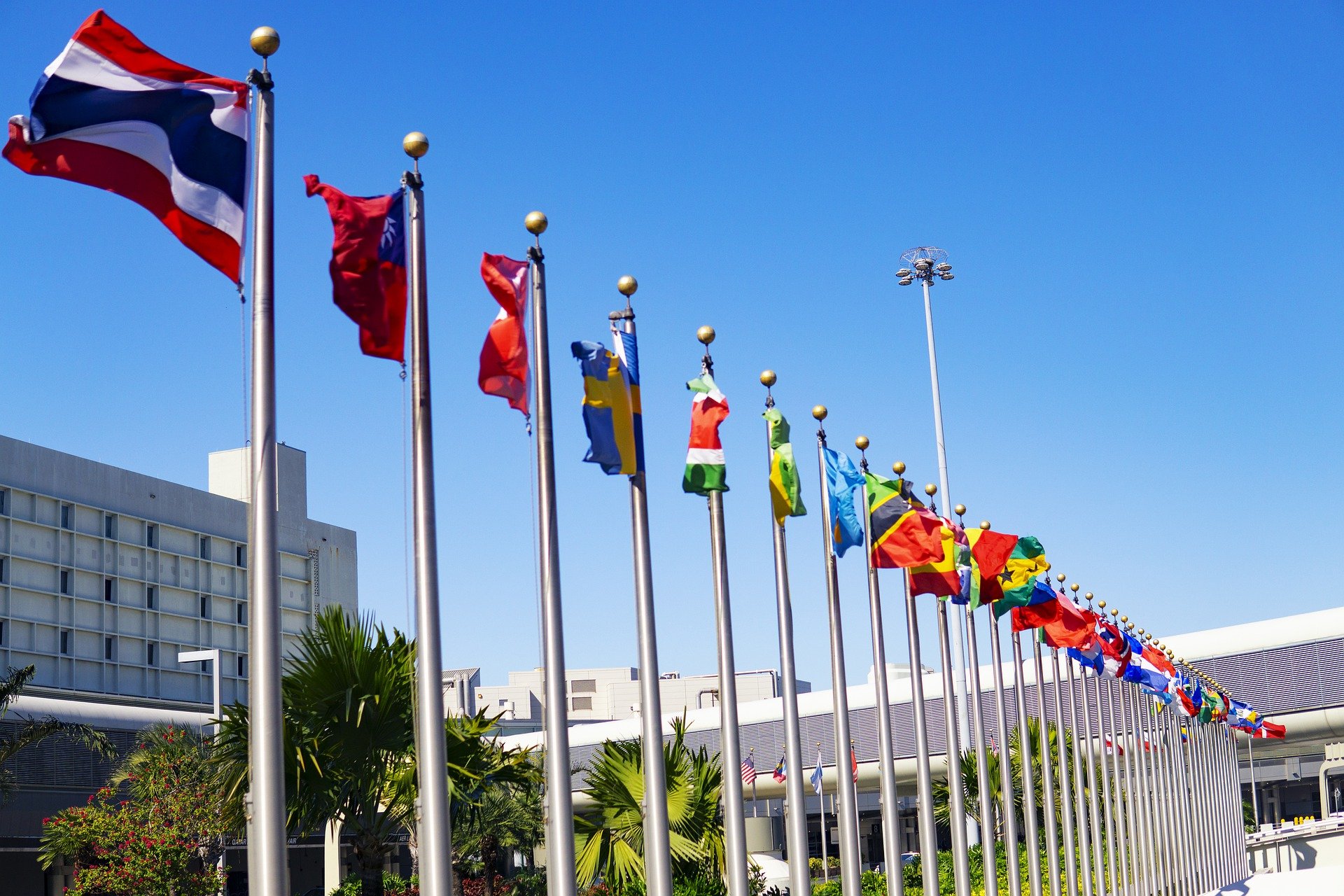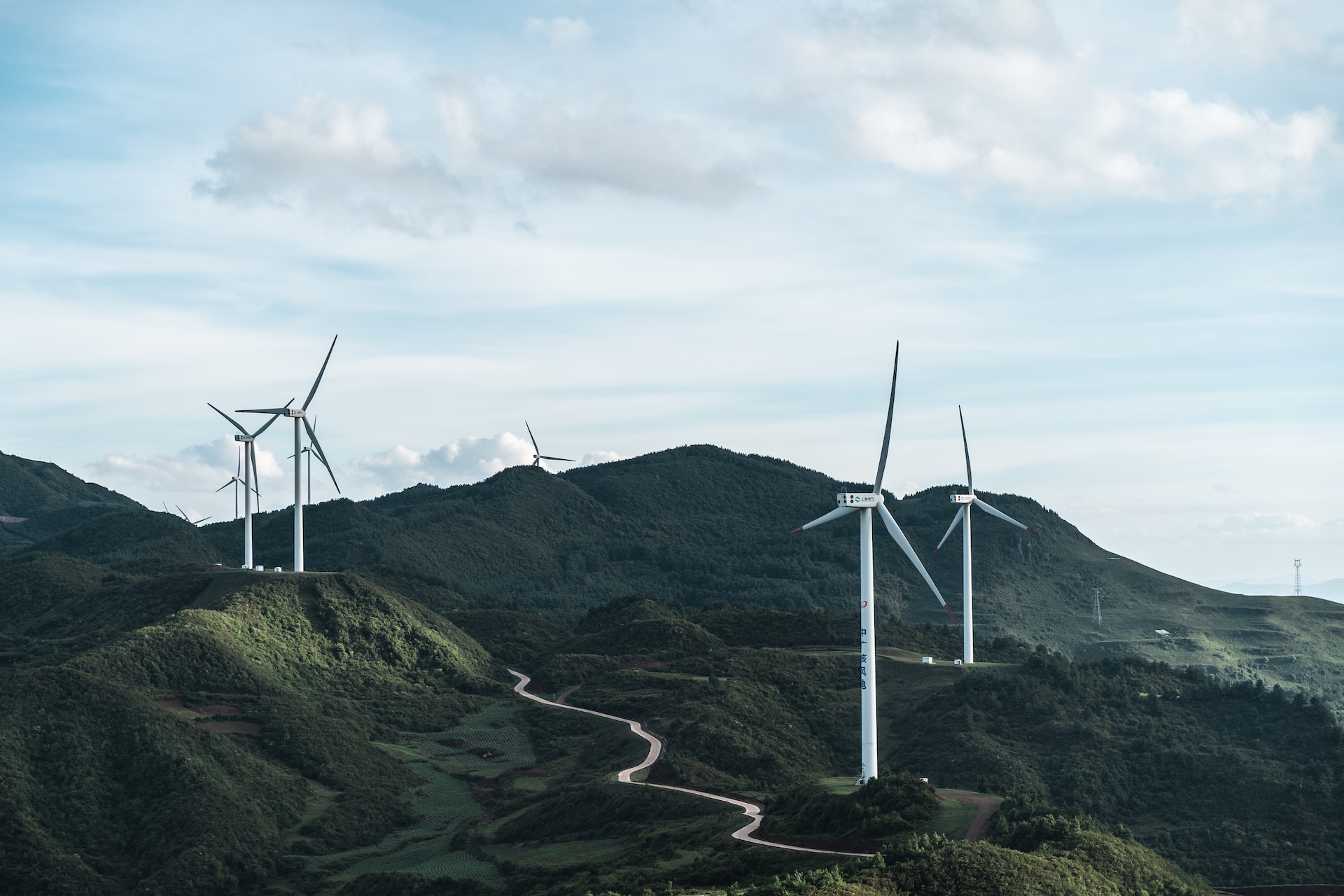Brazil on the Global Spotlight
Under the banner Todo Mundo no Rio, the city of Rio de Janeiro has been hosting a major cultural event every May since 2024. The inaugural show featured Madonna, and in 2025, Lady Gaga took the stage. Drawing over two million attendees to Copacabana Beach, it marked the largest performance of Gaga’s career. With millions of fans from around the world sharing the experience across TikTok, Instagram, and X, the event projected Brazil onto the global stage and turned Copacabana into a symbol of international culture.
Beyond entertainment, this festival is part of a broader national strategy: to position Brazil not only as a destination for tourism and entertainment, but as a key global player in business, politics, and diplomacy. This ambition is being pursued collaboratively by the federal government, state governments, and major cities.
Brazil shaping global politics
“Brazil is back” has been one of the core messages of President Luiz Inácio Lula da Silva since the beginning of his current term. As Latin America’s largest country, Brazil seeks not just a role, but a leadership position in global affairs. Its foreign policy reflects this aspiration.
One of Brazil’s key diplomatic achievements is its leadership in concluding the long-awaited Mercosur–European Union trade agreement, announced in Montevideo in December 2024. After more than twenty years of negotiations, this agreement would create the largest free trade zone in the world, encompassing over 800 million people.
Brazil is also revitalizing multilateral platforms, both regionally and globally. Regionally, it supports organizations like CELAC and UNASUR; globally, it advocates for the United Nations system, the WTO, and the rules-based multilateral order. The country is also strengthening ties with non-Western powers, particularly China and India, and leveraging its role as the only Latin American member of the BRICS bloc.
Brazil as a Hub for Global Governance
Brazil is not only asserting its voice in global forums—it is transforming itself into a venue for global dialogue. In 2024, the country assumed the G20 presidency. As host of the Leaders’ Summit in Rio de Janeiro, and other major gatherings including the Business 20, Civil 20, Urban 20, and Think 20 summits, Brazil has shaped the agenda of the world’s most influential economic forum, attracting people from around the world to their cities. Representing over 85% of global GDP and two-thirds of the world’s population, the G20 presidency enabled Brazil to promote an agenda around social inclusion and fighting hunger and poverty. The summit declaration highlighted the launch of the Global Alliance Against Hunger and Poverty, support for progressive taxation, and the commitment to appropriate taxation of billionaires.
Looking ahead to 2025, Brazil is holding the presidency of both BRICS and COP30. As BRICS (Brazil, Russia, India, China, South Africa) expands to include countries like Saudi Arabia, Egypt, UAE, Ethiopia, Indonesia, and Iran. Brazil is guiding the group under the theme “Strengthening Global South Cooperation for More Inclusive and Sustainable Governance.” Its priorities include promoting South-South cooperation and forging partnerships for economic, social, and environmental development.
Later this year, Brazil will host COP30 in Belém, Pará, at the heart of the Amazon. The UN Climate Conference (COP) will bring together global leaders to seek consensus on climate targets, discuss innovative solutions, and reaffirm multilateral commitment to reducing greenhouse gas emissions. Hosting COP30 not only underscores Brazil’s environmental relevance, but also enhances its diplomatic leverage in climate negotiations.
Subnational Diplomacy: States as Global Players
At the subnational level, Brazilian states are stepping into the international arena. A notable example is Espírito Santo, which co-hosted the 2024 Horasis Global Meeting in its capital, Vitória. Horasis is a global think tank based in Zurich, and its summits convene CEOs, ministers, civil society leaders, and thought leaders to tackle major global challenges. Under the theme “Building Bridges to the Future,” the Vitória edition gathered over 450 participants from around the world, placing Espírito Santo on the global map.
In 2025, São Paulo is following suit. The state is co-hosting the next Horasis Global Meeting, under the theme “Harnessing the Power of Cooperation.” The meeting aims to foster dialogue among business leaders, policymakers, and social innovators to develop cooperative frameworks to respond to transnational challenges and contribute to overcoming social, economic, and geopolitical divides.
Brazil as a consolidated global power
From massive music festivals in Rio to leading global governance forums like the G20, BRICS, and COP30—and through hosting international meetings in cities like Vitória and São Paulo—Brazil is consolidating its role as a global actor with the power to shape international affairs.
As the largest country in Latin America, Brazil’s global protagonism is repositioning the region on the international stage. It offers a renewed voice from the Global South and is creating opportunities for Latin America to participate in shaping global solutions in an increasingly multipolar world.
With this combination of soft power, leadership in global governance forums, and public diplomacy, Brazil is not only helping define the global agenda—it is firmly in the global spotlight, placing itself at the center of the world.
Article authored by Santiago Ardisson



